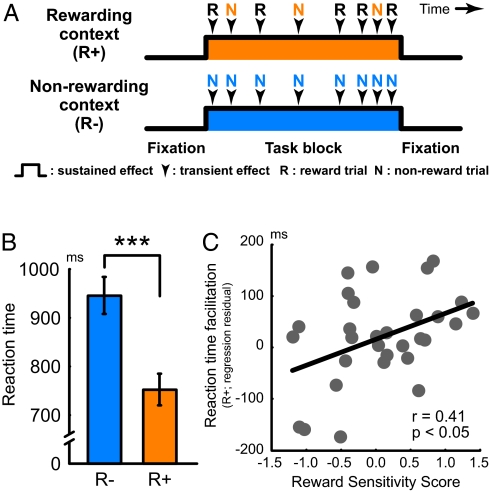Fig. 1.
Experimental design, behavioral, and individual difference effects. (A) A mixed blocked/event-related fMRI design enabled dissociation of transient/sustained activity dynamics across motivational contexts. In the reward block (R+; orange), reward trials (R) and nonreward trials (N) were pseudorandomly intermixed, whereas only nonreward trials were presented in the nonreward block (R-; blue). For transient (trial-by-trial) effects, only nonreward trials were analyzed (orange “N” vs. blue “N”) to examine the impact of motivational context on otherwise identically matched trials. The sustained (block-wise) effect (orange rectangle vs. blue rectangle) isolated persistently increased activation during task blocks, independent of trial-related effects. (B) Reaction times were faster in the R+ context than the R- context. ***, P < 0.001. (C) The RT effect was plotted against a personality trait score for reward sensitivity (z score normalized composite index). The vertical axis indicates the RT facilitation in R+ context with the RTs in R- context partialled out, and the horizontal axis indicates the reward sensitivity score. The contextual RT facilitation of incentive was greater in individuals with higher reward sensitivity score.

